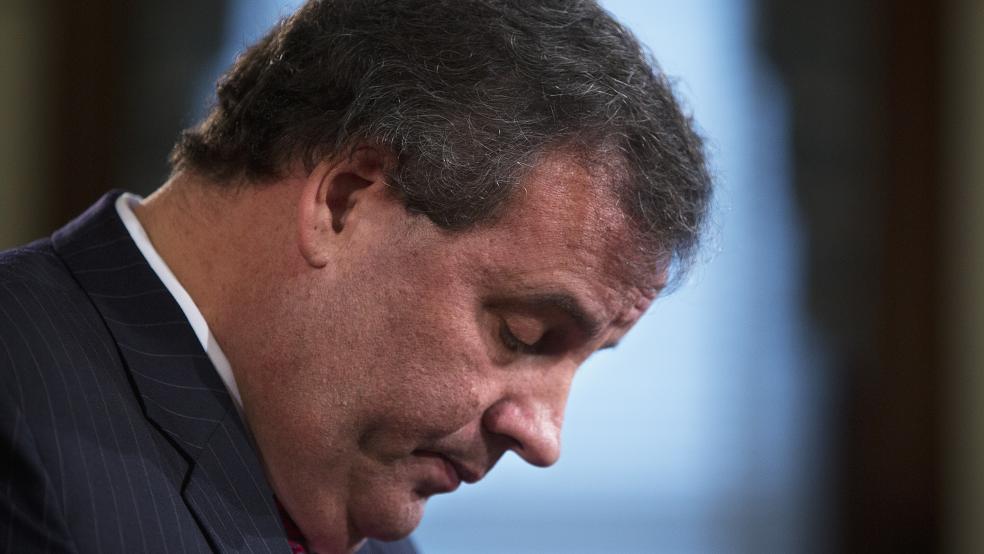It stands to reason that a governor who aspires to the White House should be able to at least carry his home state in a matchup with his likely chief rival from the opposite party, but not so embattled Republican Gov. Chris Christie of New Jersey.
Once a hard-charging state chief executive seemingly on a fast track to sewing up the 2016 Republican presidential nomination, Christie’s political fortunes plummeted following revelations of the “Bridgegate” scandal early this year and a relentless series of New Jersey government budgetary and pension woes.
Related: Christie Under the Gun (Again) for N.J. Pension Problems
Now a new Quinnipiac University poll of New Jersey voters shows former Secretary of State Hillary Clinton leading Christie by eight percentage points, 50 percent to 42 percent, in a hypothetical matchup for the presidency in 2016.
New Jersey is a Democratic-leaning state that President Obama carried in 2008 with 58 percent of the vote over Republican Mitt Romney. So it shouldn’t be surprising that Clinton – a one-time senator from neighboring New York -- would perform well in the Garden State.
But Christie was reelected governor last November with more than 60 percent of the vote, boasting of a broad bipartisan political mandate and appeal among women and Hispanics. He was touted by many as one of the few Republican presidential aspirants who could broaden his party’s mostly white-male conservative base.
Yet the new Quinnipiac poll suggests that in a matchup with a powerful Democratic figure like Clinton, much of Christie’s appeal dissipates. The poll shows Christie suffering from a huge gender gap, with women backing Clinton over the governor, 54 percent to 38 percent, while men are almost evenly divided between the two – with 47 percent for Christie and 44 percent for Clinton.
Related: Hillary Clinton’s Steady March to a 2016 Nomination
Clinton overwhelmingly leads Christie among Democrats, 85 percent to 10 percent, and she holds a 48 percent to 42 percent edge over Christie among independent voters. Meanwhile, Republicans prefer Christie over Clinton by 85 percent to seven percent.
Clinton garners a 60 percent to 38 percent in favorability; responded are divided – 47 percent to 47 percent – over Christie.
Across the state, voters are highly dubious about Christie’s prospects for higher office. Forty-nine percent say the governor should forget about his presidential ambitious compared to 46 percent who say he should run.
Christie, a brusque former U.S. attorney, once looked like a natural to lead his party in 2016. He touted his first-term economic and budget success as the “New Jersey miracle” at the 2012 Republican National Convention, and then cruised to victory for a second term in November 2013.
His political world began to implode early this year following astounding disclosures that a member of the governor’s staff and a political appointee had conspired to create traffic jams in Fort Lee, N.J. by closing toll lanes to the George Washington Bridge in retaliation against that city’s Democratic mayor for not supporting Christie’s reelection campaign.
Related: Chris Christie’s Biggest Problem Isn’t ‘Bridgegate’
As his popularity plummeted, the state’s economic and budget woes mounted. In May, he was forced to address a major budget shortfall that could exceed $3 billion over the next year, according to the Associated Press. The governor now says the state pension system -- expected to incur more than $54 billion of unfunded liabilities by 2018 -- must be fixed because it's unsustainable long-term, The Fiscal Times reported this week.
Top Reads From the Fiscal Times





